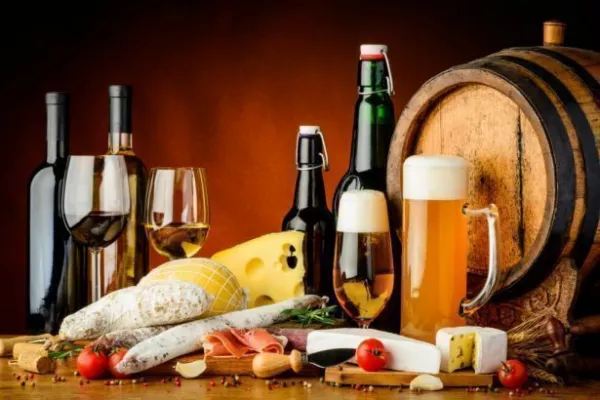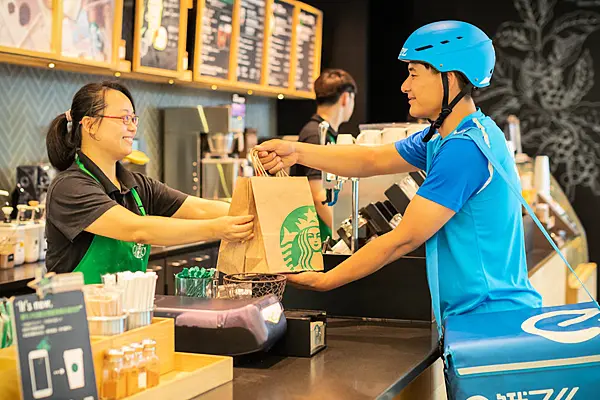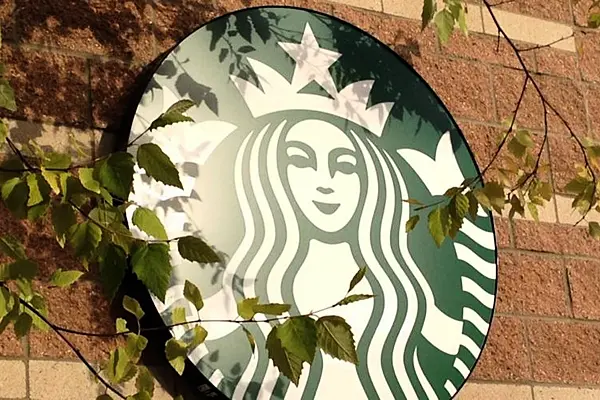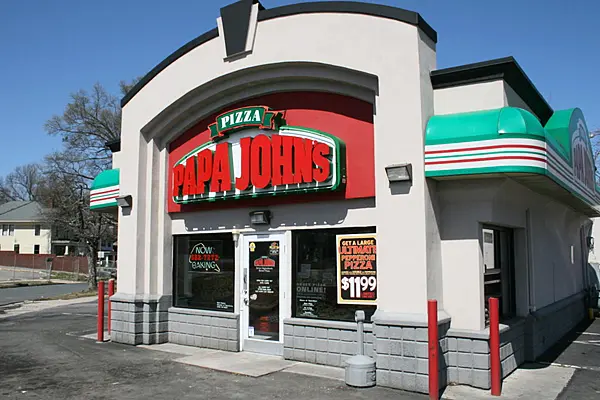Hospitality Ireland presents a round-up of global hospitality venue, food and drinks news.
Britain's Wetherspoon Warns Of Profit Impact From Omicron Curbs
British pub group JD Wetherspoon Plc warned on Monday December 13 fresh government restrictions to contain the spread of the Omicron coronavirus variant could lead to a half-yearly loss.
Britain imposed tougher COVID-19 restrictions last week, ordering people to work from home and wear masks in public places, dealing a further blow to a hospitality industry that is already navigating an uneven recovery from the pandemic.
While Wetherspoon has been seeing sales growth across pubs in many towns, places like central London - where remote work and a fall in tourist numbers have hurt patronage - have shown marked declines.
Wetherspoon Chairman Tim Martin has been an outspoken critic of the British government's handling of the health crisis. In a statement, the company said, "The uncertainty, and the introduction of radical changes of direction by the government, make predictions for sales and profits hazardous."
The company added its half-yearly results, for the 26-week period ending late January "may be loss-making or marginally profitable". It reported an annual loss of £194.6 million in October.
Wetherspoon said its pubs, with a few exceptions, are "fully stocked and fully staffed", allaying concerns about staff and product shortages that have hit many British companies.
Shares were trading 4.2% lower at 830.5 pence as of 1210 GMT on Monday December 13, their lowest level since November last year.
New China Import Rules Bring Headaches For Food And Beverage Makers
Makers of Irish whiskey, Belgian chocolate and European coffee brands are scrambling to comply with new Chinese food and beverage regulations, with many fearful their goods will be unable to enter the giant market as a Jan. 1 deadline looms.
China's customs authority published new food safety rules in April stipulating all food manufacturing, processing and storage facilities abroad need to be registered by year-end for their goods to access the Chinese market.
But detailed procedures explaining how to get the required registration codes were only issued in October, while a website for companies allowed to self-register went online last month.
"We're heading for major disruptions after Jan. 1," said a Beijing-based diplomat from a European country who is assisting food producers with the new measures.
China's food imports have surged in recent years amid growing demand from a huge middle class. They were worth $89 billion in 2019, according to a report by the United States Department of Agriculture, making China the world's sixth largest food importer.
China has tried to implement new rules covering food imports for years, triggering opposition from exporters. The General Administration of Customs of China (GACC), overseeing the latest iteration of the rules, has provided little explanation for why all foods, even those considered low-risk such as wine, flour and olive oil, are covered by the requirements.
Experts say it is an effort to better oversee the large volumes of food arriving at Chinese ports, and place responsibility for food safety with manufacturers rather than the government.
GACC said in a statement sent to Reuters that it had sought public comment on the rules prior to April.
It has "fully considered and actively accepted reasonable suggestions" and strictly followed WTO agreements on implementing food safety measures, it said, adding that it had also responded to company questions.
The European Union has sent four letters to Customs this year requesting more clarity and more time for implementation, said Damien Plan, agriculture counsellor at the European Union Delegation in Beijing.
Last week, GACC agreed that implementation should only apply to goods produced on or after Jan. 1, effectively granting a delay for products already shipped, said the European diplomat, though it has not yet published an official notification.
Still, several diplomats and exporters said they saw the rules as a trade barrier for overseas products.
"We have never had anything this draconian out of China," said Andy Anderson, executive director of the Western United States Agricultural Trade Association (WUSATA), a trade group that promotes U.S. food exports.
He described the rules as a "non-tariff trade barrier".
Food, especially chilled and frozen food, has already faced severe delays clearing Customs in China in the last year due to coronavirus testing and disinfection measures.
Foods including unroasted coffee beans, cooking oil, milled grains and nuts are among 14 new categories deemed high risk that were required to be registered by the end of October by food authorities of the exporting countries.
Facilities making low-risk foods can register themselves on a website that launched in November but has not always worked.
"The Chinese system is working now but the English one is on a trial version," said Li Xiang, business development manager at Chemical Inspection and Regulation Services Ltd (CIRS) Europe, which is helping companies with the registration process.
The rules only apply to facilities making finished products to be exported to China, but it provides little flexibility to change sourcing or labels.
Some U.S. spirits companies have registered but are still unclear on labelling requirements, said Robert Maron, VP International Trade at the Distilled Spirits Council of the United States.
"There is not a lot of time to understand what the requirements are and I think that is the main concern from our membership," he said.
No Irish whiskey makers assisted by CIRS Ireland have been able to register so far, said Li.
It is not clear what will happen if goods arrive without the required registration codes stuck onto packaging.
"For the moment, the information we got from (Chinese) authorities is that there won't be a grace period," he added.
Starbucks Plans Food Safety Checks In China After Expiry Violations
U.S. coffee chain Starbucks on Monday a December 13 pologised and said it would carry out inspections and staff training across all its roughly 5,400 stores in China after a state-backed newspaper said two of its outlets used expired ingredients.
The Beijing News newspaper, in what it described as an undercover investigation, said the incidents occurred at two stores in the eastern Chinese city of Wuxi.
The incident became a trending topic on China's Twitter-like Weibo social media site after the report was published and Starbucks initially said it had shut the two stores and was carrying out an investigation.
Later on Monday December 13 it said it had found that the two stores had indeed committed violations and that the company had not sufficiently paid attention to food safety standards.
"We sincerely apologise to all of Starbucks' customers," it said in a statement on its official Weibo account.
The Wuxi's Market Supervision Administration also said in a statement late on Monday that after conducting investigations on the two stores involved in the incident, it also carried out checks on all 82 Starbuck stories in the city, finding 15 issues in total, including employees not wearing work caps and disinfections records not being complete.
Chinese consumers and media have become more aggressive about protecting customer rights and monitoring the behaviour of big brands, especially from overseas.
Some targets, such as Canadian winterwear brand Canada Goose which drew complaints over its refund policies, have been subjected to government reprimands, while Chinese brands such as milk tea chain Nayuki have also drawn public attention.
China is the largest market for Starbucks outside the United States with 5,360 stores as of Oct. 3, the firm's latest earnings report showed.
The Beijing News report said one of the Starbucks stores used expired matcha liquid to make lattes, while another had put pastries up for sale that were meant to be thrown away.
As of Monday December 13 afternoon, the topic of Starbucks' response to the Beijing News report had received more than 50 million views on Weibo. Commenters expressed both disappointment and worries over more widespread problems.
"If Starbucks is like this, the other shops really worry me," said one Weibo user named Revario. "They suffer the scrutiny because it is a foreign brand."
MGM Resorts To Sell Mirage Hotel And Casino For $1.08bn To Hard Rock
MGM Resorts International said on Monday December 13 it would sell the operations of the Mirage hotel and casino in Las Vegas to Hard Rock International for about $1.08 billion in cash.
The Mirage opened in 1989 and was acquired by MGM Resorts in 2000. The property is known for its entertainment options and 90-foot Strip-side volcano.
The sale is expected to close in the second half of 2022 and is likely to deliver to MGM Resorts net cash proceeds of about $815 million after taxes and fees.
The company will retain the Mirage name and brand, licensing them to Hard Rock royalty-free for up to three years while it finalizes its plans to re-brand the property.
Funding Strains Remain For Japan's Small Hotels And Restaurants, Complicating BOJ Policy
Japan's small hotels and restaurants continue to suffer from financing strains caused by the COVID-19 crisis, a survey showed on Tuesday December 14, complicating the central bank's decision on when to end pandemic-relief funding programmes.
An index gauging funding conditions among small and midsized hotels and restaurants hit minus 33 in the three months to December, according to a full version of the Bank of Japan's tankan survey.
While the reading was better than minus 46 in the previous survey, it showed that far more firms saw financing conditions as severe compared with those that felt they were easy.
The plight of small, service-sector firms highlights the widening gap among companies that weathered the pandemic's hit, and those still reeling from the fallout.
An index measuring funding conditions of companies of all size and industry improved in the three months to December, an outline of the tankan released on Monday showed.
The results are among factors the BOJ will scrutinise at this week's meeting in deciding whether to scale back emergency funding deployed last year to combat a pandemic-induced cash crunch, which expires in March 2022.
The board is leaning toward tapering the BOJ's corporate bond and commercial paper purchases, but leaving intact a portion of a loan scheme targeting smaller firms, sources have told Reuters.
"The BOJ may end corporate bond and commercial paper purchases. Given uncertainty over the Omicron variant, however, the central bank may play it safe and extend other parts of the programmes beyond March," said Takashi Miwa, chief economist at Nomura Securities.









